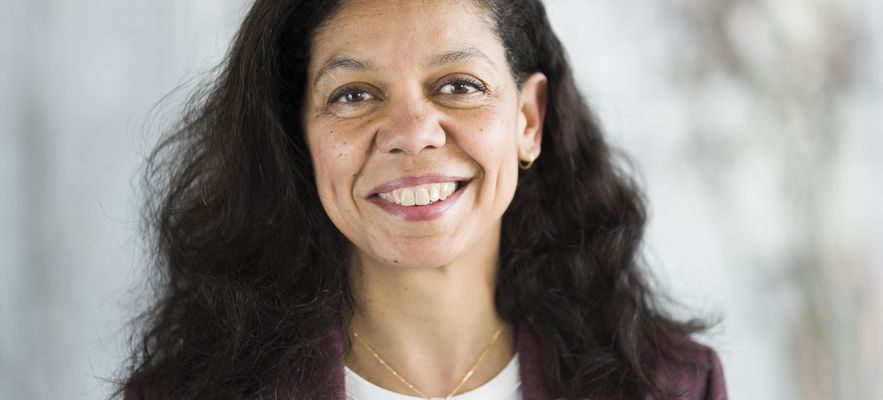The cinema is more interested in the stories of private detectives than in the intrigues of business leaders. So if the boss is also a boss, the field is reduced even more. In this summer series, we have selected four films, French and American, from 1933 to 2017, in which the heroine is a leader. Tough or sensitive, in the world of industry or fashion, respected or hated, virtuous or scandalous, they all say something about the society in which they evolve and the way they are perceived. For L’Express, today’s great bosses have taken a look at their fictional counterparts.
EPISODE 1 – “The Banker”: Romy Schneider, an Amazon of finance
She is the caricature of the woman of power. Neither cantankerous, nor selfish, nor belligerent, Emmanuelle Blachey, the heroine of number one, is on the contrary pleasant, empathetic, placid. This film is undoubtedly the one that approaches with the most realism the itinerary of a great leader in the business world. Co-screenwriter, journalist Raphaëlle Bacqué had opened the doors of French capitalism, female version to Tonie Marshall. The director then synthesized their confidences, those of Anne Lauvergeon and Laurence Parisot among others, to create the character interpreted by the so subtle Emmanuelle Devos.
number one follows the journey, both in life and on stage, of a brilliant director of a wind turbine producer who is pushed by a network of women to run for the position of CEO of Anthea, the fictional equivalent of Veolia and a member of the CAC 40. She would thus become the first to land such a position… Obstacles arise, of course. The first is herself, notes Valérie Vesque-Jeancard, a Vinci manager keen on culture. “During her first encounter with this feminist network, Emmanuelle Blachey stood out by considering that it was ‘annoying to play the feminine card’, adding: ‘All my life, I tried to make people forget that I was a woman.’ She is “not sure to believe in female solidarity”, to which the boss of the network replies that it is not about religion, but about politics”, notes the president of Vinci Railways and deputy director of Vinci Airports with a CV as long as her arm: polytechnician (like the character), but also a graduate of the Ecole des ponts and the Paris School of Economics, passed by Bercy, the Court of Auditors, the management of the National Library of France and that of the Réunion des musées nationaux – Grand-Palais, among others. “Emmanuelle Blachey goes regularly to the opera and to the gym, two markers of the woman of power! But she is endearing by her fantasy, declaiming Cyrano de Bergerac in the street with her daughter or smoking in secret on the roof of her building like a teenager”, she smiles.
Valérie Vesque-Jeancard, President of Vinci Railways & Deputy Director France & Americas
© / Alexandre Dupeyron/Vinci
Faced with the candidacy of Emmanuelle Blachey, the male resistance is organized. Jean Beaumel tries to impose his own colt at the head of Anthea, where he himself practiced, and schemed. Played by Richard Berry, this sad sire resolutely embodies the old world, that of misogyny, political intrigue and low blows, with the support of his gray eminence – Benjamin Biolay. He will go so far as to spit at his rival: “Everything you do will be analyzed with a magnifying glass. Each time you make a mistake, it will reflect on all your fellow men, and they will resent you.” No support to be expected either within his own company or even among the relatives of this brilliant quadra. Her boss recognizes the qualities of her collaborator, a skilful negotiator and fluent in Mandarin with their Chinese clients, but exercises a good-natured paternalism. His academic father looks with contempt on the corporate world. Her husband rebels, fearing to sacrifice his career on the altar of that of his wife.
Valérie Vesque-Jeancard admits for her part that she did not have to fight or intrigue to progress. And that women have also been able to put a spoke in his wheels, on occasion. On the other hand, she says, “I recognize myself quite well in this desire to take everything on board, to regularly move from serious to lightness, to take care as much of my balance as that of those around me, professionally and personally. This sensitive portrait seems to me to represent the leaders of today. Hardworking, constructive, passionate about their work, in search of ‘usefulness in the world’ more than power… and leading lives without any downtime!”. The leader of Vinci joins here the thought of Tonie Marshall, summarized in an interview with Figaro in 2017, when the film was released: “One of the big differences between the sexes is there: men want a job. Women want a project.”
number one (2017), by Tonie Marshall.
With Emmanuelle Devos, Suzanne Clément, Richard Berry…
